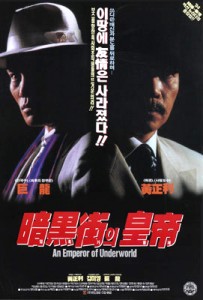
“An Emperor of the Underworld” Korean Theatrical Poster
Director: Hwang Jang Lee
Writer: Im Seung-su
Cast: Dragon Lee (Mun Kyong-sok), Hwang Jang Lee, Lee Jin Young, Kim Mi Young, Hyeon Kil Su
Running Time: 87 min.
By Paul Bramhall
If there was ever a genre that could be described as having little to no exposure outside of its native country, then it’s the 90’s Korean action movie. Compared to the likes of Hong Kong and Japan’s own action cinema output during the same decade, Korea’s equivalent remains shrouded in mystery. It’s a shame, as there’s plenty of action gold to be found, however it’s a country whose film industry had little to no attention paid to it before the release of Shiri in 1999, which broke through internationally thanks to its Hollywood style aesthetic. Unfortunately, even at the time of writing more than 15 years on, only a fraction of Korean movies released before 1999 (in any genre), have made their way to DVD.
As it stands, many of the action movies that came out during the 90’s received a release on Korean VHS, and that’s it. To confound matters even further, a significant number of them didn’t receive a theatrical release, instead going direct-to-VHS, and often such titles aren’t even listed on the notoriously difficult to navigate Korean Move Database. Much of the reasoning behind this is that the action genre was treated much the same as Japan’s equivalent in the 70’s. Karate movies were quickly filmed productions, often featuring heavy doses of exploitation, and were never made with the thought that there’d be an audience who’d want to check them out several decades later.
Many of Korea’s own action output in the 90’s could be considered to fall into the same category. During the 80’s erotic film became hugely popular, and the end of the decade coincided with many of the Korean stars, who’d been busy delivering their boot work in the Hong Kong kung fu movie boom of the 70’s and 80’s, returning home. Hwang Jang Lee, Casanova Wong, and Dragon Lee – a trio of instantly recognizable names to any kung fu cinema fan – were all back on Korean soil in the 90’s, and all of them made their final film appearances during the decade while working in Korea. With period movies long gone out of fashion, the gangster flick quickly became the go-to genre for some Taekwondo style action. Fedora hats, oversized shoulder pads, and bulky suits came to define the 90’s Korean gangster flick, which often served up fight scenes and nudity in equal measure.
It could be said that 1994 was a year of particular significance. Casanova Wong, the star of such Hong Kong classics as Warriors Two and The Master Strikes, would make his last screen appearance in, as well as directing, the violent gangster flick Bloody Mafia. Hwang Jang Lee, who needs no introduction, would also mark his last significant screen appearance, in a movie which, like Casanova Wong, he’d also direct, titled Emperor of the Underworld. It’s worth noting that many sources list the 1996 Korean movie, Boss, as Hwang’s final movie appearance, and while this is true, his screen-time clocks in at barely a minute, with a role that’s purely dialogue.
Hwang had directed himself before, most memorably playing the clean shaven good guy in Hitman in the Hand of Buddha in 1981, and as the conflicted anti-hero a couple of years later in Canton Viper. Emperor of the Underworld though marks the first time he doesn’t cast himself as the lead, instead opting to take the villain role. The lead goes to another familiar face from the world of kung fu cinema, Dragon Lee. Both Hwang and Lee had worked together before, on both the likes of old school Korean kung fu movies such as Secret Ninja, Roaring Tiger and 5 Pattern Dragon Claws, as well as in another 90’s action movie, the second installment of The Nationwide Constituency trilogy.
The plot for Emperor of the Underworld is straight forward stuff. Lee is a marine who has a reputation for getting the job done, shown in a pre-credit sequence that has him storming a criminal hideout, decked out in all black fatigues with machine gun in hand. Any movie that starts off with Dragon Lee armed with a machine gun has already earnt instant favour with me. However once he’s discharged, he finds himself stalked by the police. It turns out they want to infiltrate a violent gang, one that’s working in conjunction with some evil Japanese property developers, and Dragon Lee seems to be the guy for the job. He agrees to take on the mission, on the condition that his friend is released from prison so that they can work together. However when it turns out that their former colleague, a girl Lee used to be close to (played by So Bia, an actress who was known for the erotic movies she starred in during the 80’s and 90’s), is also working for the gang, the situation gets complicated.
Despite the simplistic plot, it’s told effectively, and it’s refreshing to see a Dragon Lee movie being told entirely poker faced from start to finish. Despite being over 15 years since the peak of his career in movies like Enter the Invincible Hero, he’s still instantly recognizable and in great shape. Several lackeys end up on the receiving end of Lee’s fists during the run time, and at one point, for no other reason than to intimidate a group of thugs who are threatening him, he flips a stationery car over with his bare hands. The scene is so random that it’s difficult not to appreciate. I’m also unsure if it was an intentional homage or not, but when he’s first discharged from the army, he visits a nightclub to meet his old colleague, carrying a rucksack of his belongings slung over his shoulder. I’ve personally lost count of the number of Dragon Lee movies I’ve seen, which have him wandering the countryside with nothing but a rucksack slung over his shoulder! It’s like it was his permanent prop.
The nightclub scenes are also notable, purely for the fact that the music playing in the background, an American rap song, has some of the most obscene lyrics I’ve ever heard in a movie (or anywhere). It became a little difficult to concentrate when Lee was having a serious conversation with his old friend, when all you can hear in the background is the rapper distinctly announcing that he was “gonna put my d*ck in your behind.” I’m sure some MC Hammer would have been much more suitable.
Hwang Jang Lee himself doesn’t make an appearance until the 55 minute mark. Playing a former colleague who feels heavily indebted to the gang boss, he agrees to become the chief enforcer. When events transpire that see the gangsters retaliating against Lee and his colleague by killing their mentor, it’s time to serve up some 90’s style Korean action movie revenge. The lead-up to the finale somewhat echoes the finale of A Better Tomorrow 2, as Lee leads a funeral march with the coffin of his mentor up to gates of the gangsters mansion, in which Hwang Jang Lee and the other gang members are wining and dining on the front lawn. Thankfully as well as bringing the coffin, they also brought along a machine gun, in a scene which perhaps has the record for number of bullets fired without managing to hit a single solid object.
The showdown eventually culminates in a face-off between Dragon Lee and Hwang Jang Lee, which has them going at it on the lawn, in a pond, and finishing off in one of Korea’s many mud flats. For anyone that’s seen the Korean flick Rough Cut, it’s a possibility that the idea for that movies similar ending, which has the two main characters slugging it out on a similar mud flat, came from here. Like any good Dragon Lee movie, he ends up shirtless, and covers himself in mud, using it’s slipperiness to deflect Hwang’s lethal kicks. While it’s easy to argue that the choreography of the fight, and the action as a whole in Emperor of the Underworld, is far from matching that of the pairs work at their physical peaks, it’s never anything less than entertaining.
Best of all (or worse, depending on how you look at it), is that whenever Lee gets involved in a fight, he immediately switches to Bruceploitation mode – flicking his nose, staying light on his feet, and breaking out Bruce’s famous facial expressions whenever he hits someone. It’s almost as if he doesn’t know how to fight any other way, it’s simply become ingrained. Far from being detrimental to the story though, the scenes remind us that we’re watching a Dragon Lee flick, and how much we would have missed it if there hadn’t been a single nose flick in sight. These types of production can never be considered anything more than B-movies, a fact that’s no doubt contributed to securing their obscurity, but Emperor of the Underworld sets out to do exactly what it says on the tin – deliver a tale of macho gangsters and people being punched. I only wish there was more of them to choose from.
Paul Bramhall’s Rating: 7/10



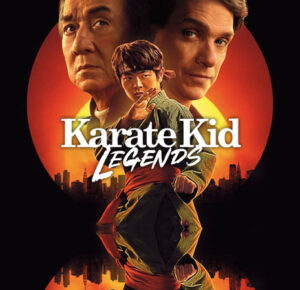

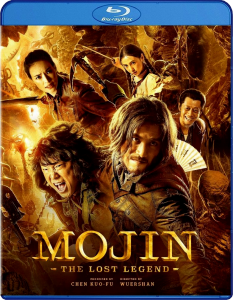
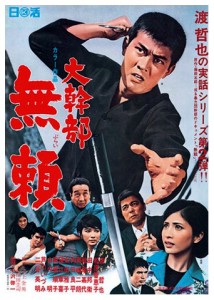


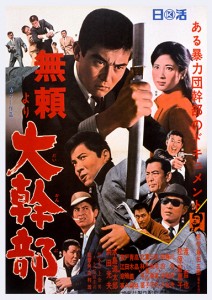


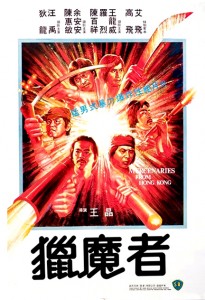

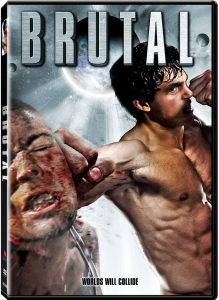
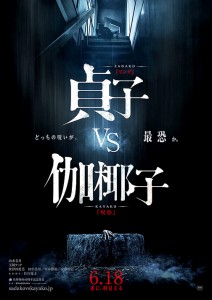


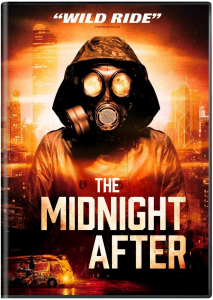
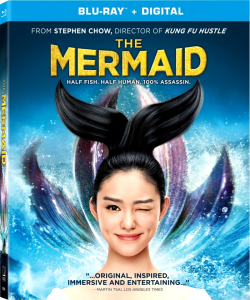



25 Comments